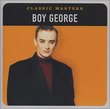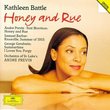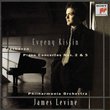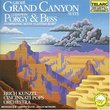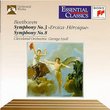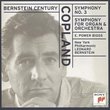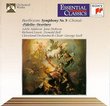Bax to the Max - Engaging Sonatas and other Gems
Hexameron | 04/15/2007
(5 out of 5 stars)
"Arnold Bax has his share of enthusiasts, mostly those who appreciate his symphonic poems and other large-scale orchestral works. Although I've heard a few of these orchestral works on the radio, this particular recording is the only CD I own of Bax's music. I bought this CD because I was enticed by the Naxos description of these Sonatas: "turbulent Lisztian" and "warring forces of light and darkness." Whatever Bax's reputation with orchestral music is, after judging these two sonatas, I think his piano compositions are highly-crafted, aesthetically pleasing, and full of dark but beautiful intensity.
I disagree with the reviewer below me that these sonatas are "boring" or tend to "meander." I wonder if we're hearing the same music. Both Sonatas, particularly the massive Second, are structural organisms, replete with motifs and identifiable themes. I certainly didn't get the impression that the First Sonata was "meandering." Of somewhat Lisztian-Scriabinesque descent, the 22 minute work explores highly Romantic but contrasting themes. Ashley Wass's extraordinary dynamics are apparent; he expresses the forte passages with triumphant passion and plays the soft moments with poise. Bax himself demonstrates an interesting conglomeration of pianistic styles in this First Sonata. One hears Lisztian tremolos, Scriabin-like dissonances and in the marvelous chiming Bells of the coda, a tinge of Rachmaninov. Overall, this is a well-balanced and emotionally engaging 20th century piano sonata.
The Second Sonata, a mammoth of a single-movement composition reaching 28 minutes, is a unique work with an entirely different scope in mind. Not since Beethoven's 5th Symphony have I experienced such a convincing battle of themes, of darkness and light. The incredibly dark opening and its subsequent late-Liszt theme is a significant "motto" or motif of darkness. This ominous music is pleasantly melodic and the contrasting fanfare of the "light" theme is wonderfully majestic. For 28 minutes the themes riposte and parry each other. Darkness always seems victorious in its return, but the power of light is never doubted. By the end of the extended coda, it's difficult to say which theme has won. Musically, in the final cadence, it "sounds" like the light won, but somehow the grim darkness theme still lingers in the background. This is just original and excellent piano writing. Bax employs convincing pianistic devices: shadowy tremolos, dissonant arpeggios, sonorous experiments in the lower registers, and rich chordal textures.
The last four pieces are not as masterful as the two Piano Sonatas, but are full of charm, excitement and some gorgeous melodic ideas. "Dream in Exile," for example, possesses terribly haunting music in the Romantic style. Although not akin to a Chopin Nocturne, it certainly matches the seductive beauties of those Chopin miniatures. The next piece, "Burlesque," is obviously lighter material and somewhat jovial, displaying an oriental characteristic. But after the brooding gloom of the previous works, this little piece makes for good diversity. The "Nereid" piece is, according to Bax, "nothing but tone color - changing effects of tone." Yet it's still tempting to imagine a dreamy vision of swimming water nymphs while listening to the murky harmonies. From the start, the last piece, "In a Vodka Shop," sounds exactly like "Burlesque" with its Russian rhythms and loud declarations. It's not that memorable but still prevails as an enjoyable trifle.
Bottom line: Bax's two large Piano Sonatas are astounding works of the late-Romantic early-Twentienth-Century mold. With flavors of Russian piano-writing, mystic-Scriabin and Lisztian virtuosic ornamentation, the music is superficially pleasant. Yet delving deeper into this music, and upon repeated hearings, one can pick up on tremendously effective coloring, sonorities, and structural suggestions. This CD is Naxos Gramophone Editor's Choice for a reason: it contains dramatic, compelling, and substantial music. Highly Recommended!"
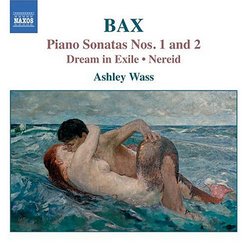

 Track Listings (6) - Disc #1
Track Listings (6) - Disc #1
